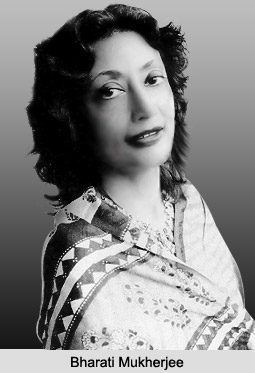 The tiger`s daughter is the story of shattered dreams; the saga of culture conflict. The fictionalized story is drawn from the writer`s own experience. The hankering to experience the land that is in the memory and then the utter disillusionment makes this novel a true anecdote of sheer reality.
The tiger`s daughter is the story of shattered dreams; the saga of culture conflict. The fictionalized story is drawn from the writer`s own experience. The hankering to experience the land that is in the memory and then the utter disillusionment makes this novel a true anecdote of sheer reality.
Bharati Mukherjee was born in pre-independence era i.e. on July 27, 1940, to an upper-middle class Hindu Brahmin family in Calcutta, India. Being a daughter of Sudhir Lal and Bina Mukherjee she lived in a joint family until the age of eight. She born into an extraordinarily closely knit and intelligent family, and because of her this background Mukherjee and her sisters were always given ample academic opportunities. They were given the best possible education and excellent schooling. In 1947, her father was given a job in England and he brought his family to live there until 1951, which gave Mukherjee an opportunity to develop and perfect her English language skills. Mukherjee did her graduation with honors from the University of Calcutta in 1959. Subsequently she studied for her Master`s Degree in English and Ancient Indian Culture in Baroda, India. Bharati had an ambition of being a writer from her childhood. So in order to fulfill her dream she went to the University of Iowa in 1961 to attend the prestigious Writer`s Workshop. She planned to study there to earn her Master`s of Fine Arts. After acquiring her degree she returned to India to marry a bridegroom of her father`s choice. But as all know that marriages are made in heaven, she ends up marrying a Canadian writer Clark Blaise after a short courtship of two weeks.
Synopsis:
The tiger`s daughter is the first creation of Bharati Mukherjee who born in India but ultimately based in Canada. The central character of this fiction is Tara and the story revolves around her. The protagonist having an Indian origin educated at Vassar College, New York. The story gets its height when the political scenario of Calcutta gets explored to Tara after coming back to the country. Tara mainly returns to India to poverty and turmoil. This story parallels Mukherjee`s own venture back to India with her Canadian husband Clark Blaise in 1973 when she was deeply affected by the chaos and poverty of India. She was shattered about the mistreatment of women in the name of tradition. In this trip to Bengal her husband, however, became very fascinated by the surrounding magic of the myth and culture of Bengal. These differences of opinion, her shock and his awe are experienced in many of her writings. This first novel of Bharati Mukherjee addresses personal difficulties of being caught between two worlds, homes and cultures and is an examination of who the protagonist is and where she belongs.
Houghton Miffin published the `The tiger`s daughter` by Bharati Mukherjee in 1971. This was the hardcover publication however in later years i.e. in 1992 the Fawcett Crest published the paperback edition.
`The tiger`s daughter` is a tinge of autobiographical story about an East Indian immigrant who is unable to adjust to North American culture. However, at the same time she is painfully aware of the fact that she will never return to the culture again. The protagonist Tara in `The Tiger`s Daughter` is uncertain about her return "home" after living in the West for ten years. The innocence of her childhood is shattered when she experienced the lack of opportunity offered to women in her native land.



















